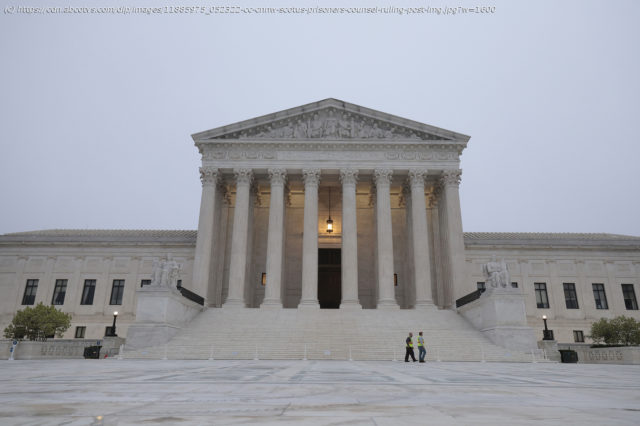A Supreme Court ruling makes it tougher for prisoners to argue their counsel was ineffective. The SCOTUS decision is a loss for 2 death row inmates.
WASHINGTON — The Supreme Court said Monday that state prisoners may not present new evidence in federal court in support of a claim that their post-conviction counsel in state court was ineffective in violation of the Constitution, CNN reported. The ruling is a major defeat for two inmates on death row who said they had compelling claims that their state lawyers failed to pursue. In addition, it will make it harder for inmates across the country to prevail on claims that they received ineffective counsel at the state court level in post-conviction proceedings. The 6-3 opinion was penned by Justice Clarence Thomas. Thomas suggested that allowing such claims to go forward would cause unnecessary delays, and he said that federal courts « must afford unwavering respect to the centrality of the trial of a criminal case in state court. « »Serial relitigation of final convictions undermines the finality that is essential to both the retributive and deterrent functions of criminal law », he wrote. In his decision, Thomas emphasized the brutality of the crimes. He called the « intervention » by federal courts an « affront to the state and its citizens who returned a verdict of guilt » and said that federal courts « years later » lack the « competence and authority to relitigate a state’s criminal case. « The three liberal justices dissented. In a stinging dissent, Justice Sonia Sotomayor called the decision « perverse » and said that the court had gutted precedent. The majority opinion, she wrote, « reduces to rubble » many inmates’ constitutional rights. « The Sixth Amendment guarantees criminal defendants the right to the effective assistance of counsel at trial », Sotomayor wrote.
Home
United States
USA — Criminal Supreme Court makes it more difficult for prisoners to argue they had...






